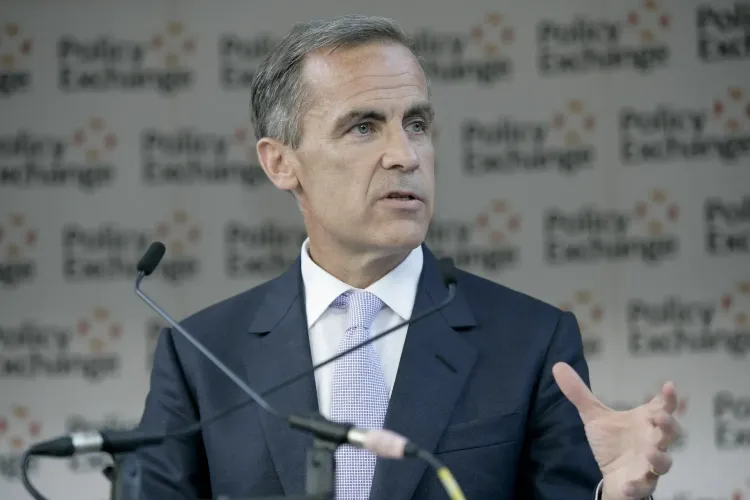Canada's PM Carney Announces Snap Elections Amidst Trump's Pressure

Synopsis
Key Takeaways
- Mark Carney calls for snap elections.
- Election scheduled for April 28.
- Trump's actions have influenced Canadian politics.
- Polls indicate a potential Liberal majority.
- Conservative leader Pierre Poilievre faces challenges.
Ottawa, March 24 (NationPress) Canada's Prime Minister Mark Carney has declared a snap election as his nation deals with US President Donald Trump's aggressive stance, which has significantly boosted the ruling Liberal Party in the polls.
On Sunday, Carney scheduled the election for April 28, a pivotal moment that could reshape Ottawa's policies both domestically and in relation to other countries, including India, whose relationship deteriorated during the previous administration of Justin Trudeau.
Current polls suggest that the New Democratic Party (NDP), which previously influenced Trudeau's policy towards India and supported Khalistani interests, will see a substantial reduction in its influence following the election.
Carney framed the election as a referendum on the best approach to tackle the US, stating, "We are confronting the most significant crisis of our lifetimes due to President Trump's unfounded trade actions and threats to our sovereignty."
Trump has claimed that Canada isn't a legitimate country, aiming to undermine its independence. Carney asserted, "We will not allow that to happen."
The former banker, who lacks political experience, is set to go up against Conservative Party leader Pierre Poilievre.
Interestingly, the Conservative Party enjoyed a lead in polls at the beginning of January, and Trump, who previously belittled Trudeau, has inadvertently turned the fortunes of the Liberal Party, which is now neck-and-neck with the Conservatives.
Trump remarked, "I got involved and completely shifted the election."
The Canada Broadcasting Corporation (CBC) Poll Tracker forecasts that Carney's Liberals will secure 174 seats, an increase from 152, in the 343-member House of Commons, granting them a majority.
The tracker suggests a 60 percent likelihood of the Liberal Party forming a government independently.
In such a scenario, Carney would no longer need to depend on the detrimental support of the NDP led by Jagmeet Singh.
On January 6, the day Trudeau announced his resignation, the Conservative Party held a 24 percent lead over the Liberal Party, with 44.2 percent to 20.1 percent.
However, as Trump intensified pressure on Canada, insisting it should become a state of the US and initiating his trade war, public opinion shifted towards the Liberal Party.
Currently, the Liberal Party has 37.5 percent projected support compared to the Conservatives' 37.1 percent, while the NDP's support has seen a significant decline from 19.3 in January to 11.6 now.
Poilievre is perceived as ideologically aligned with Trump, raising concerns about his capacity to manage relations with the US. The focus of the election has shifted from inflation and domestic issues to what could be an existential battle for Canada’s independence.
Carney noted that the choice for Canadians is between "a Canadian Trump or a government that unites the country and prioritizes actions that build a robust economy for all Canadians."
He criticized Trump's plan to take over Canada as "insane."
In contrast, Poilievre, launching his campaign on Sunday, stated, "You can be respectful and firm, and I believe we need to embody both."
However, he emphasized, "I will demand that the President acknowledge Canada's independence and sovereignty. I will insist he cease imposing tariffs on our nation."
His "Canada First" agenda aims to fortify the nation, ensuring it can stand independently and confront the US when necessary.
Carney is uniquely positioned, having served as the governor of the central banks of both Britain and Canada, a background that may provide him an advantage in navigating the challenges posed by the trade war.
He is steering the Liberal Party toward a more centrist stance, retracting proposed tax hikes on capital gains and abolishing certain carbon emission taxes.
Meanwhile, Poilievre's agenda advocates for increased deregulation, expanded resource exploitation, and tax reductions, while also criticizing "wokeness" and affirming the recognition of two genders—all themes that resonate with Trump.









